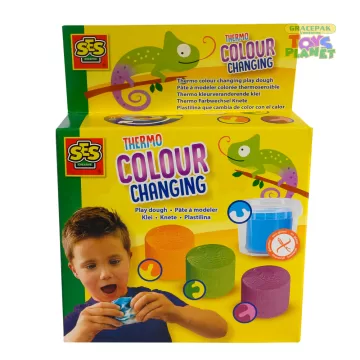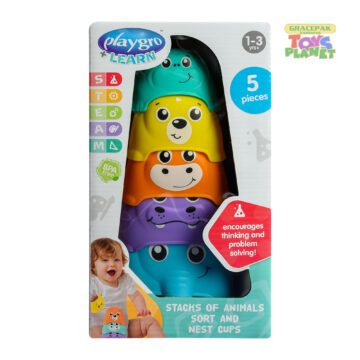
Play is often regarded as a natural and instinctive activity for children. It not only brings joy and fun into their lives but also plays a crucial role in their overall development. For children with learning difficulties, play becomes even more significant as it can provide them with unique opportunities for growth, learning, and overcoming challenges. In this blog, we will explore the invaluable role of play in the lives of children with learning difficulties and understand how it supports their physical, social, emotional, and, cognitive development among others.
Sensory Integration:
Play provides children with learning difficulties the opportunity to engage in sensory-rich experiences. Sensory play activities, such as playing with sand, water, or tactile materials, help children explore and integrate sensory information. This supports their sensory processing and regulation, enabling them to better understand and respond to different sensory stimuli in their environment. Improved sensory integration positively impacts their attention, focus, and overall learning abilities.
Executive Function Skills:
Executive functions, such as planning, organizing, problem-solving, and self-regulation, can be challenging for children with learning difficulties. Play provides opportunities for them to practice and strengthen these skills in a meaningful and enjoyable way. Activities like building complex structures, engaging in strategic board games, or participating in pretend play scenarios require the use of executive functions. By engaging in play, children with learning difficulties develop and refine these essential cognitive skills, which are crucial for academic success and daily life.
Self-Advocacy and Independence:
Play fosters self-advocacy and independence in children with learning difficulties. As they engage in various play experiences, they learn to make choices, set goals, and take ownership of their actions. This encourages them to assert their preferences, communicate their needs, and problem-solve independently. By gaining confidence and developing a sense of agency through play, children become more self-reliant, resilient, and better equipped to navigate challenges both inside and outside the classroom.
Language and Communication Development:
Engaging in play offers a natural context for language and communication development in children with learning difficulties. Pretend play, storytelling, and interactive games encourage language exploration, vocabulary expansion, and the development of verbal and non-verbal communication skills. By engaging in conversations, expressing ideas, and engaging in imaginative play scenarios, children enhance their language abilities and improve their communication and social interaction skills.
Motivation and Engagement:
Children with learning difficulties may often experience frustration or lack of motivation in traditional learning environments. Play-based approaches offer a way to increase their engagement and motivation. By incorporating play into educational activities, teachers can tap into the intrinsic curiosity and interests of children, making learning enjoyable and meaningful. Play provides a sense of autonomy, fun, and active participation, which can enhance their motivation to learn, explore new concepts, and persevere through challenges.
Physical Development:
Engaging in various forms of play supports the physical development of children with learning difficulties. Gross motor play activities like running, jumping, climbing, or participating in sports enhance their coordination, strength, and overall physical fitness. Fine motor play, such as arts and crafts, playing with manipulative toys, or using building blocks, develops their skillfulness and hand-eye coordination. Improved physical abilities not only contribute to their overall well-being but also positively impact their academic performance and learning abilities.
Learning and Academic Progress:
Play can significantly impact the learning and academic progress of children with learning difficulties. By incorporating play-based strategies into educational interventions, educators can create an engaging and meaningful learning environment. Play-based learning activities allow children to explore concepts, experiment with ideas, and actively participate in their learning process. This approach promotes motivation, enhances comprehension, and provides multiple entry points for children to grasp challenging concepts, leading to improved academic outcomes.
Cognitive Development:
Play acts as a powerful tool for enhancing cognitive skills in children with learning difficulties. Through play, they engage in problem-solving, decision-making, and critical thinking activities. Whether it’s building with blocks, solving puzzles, or engaging in imaginative play, children exercise their cognitive abilities, improving their attention span, memory, and spatial awareness. Play provides a safe and enjoyable environment where they can experiment, explore, and learn from their experiences, fostering creativity and intellectual growth.
Social Development:
Children with learning difficulties often face challenges in social interactions. Play offers a platform for them to develop and refine their social skills in a supportive setting. Whether engaging in cooperative play, participating in group activities, or engaging in pretend play, children learn to communicate, listen, negotiate, share, and take turns. These social interactions during play enhance their ability to empathize, understand social cues, and build meaningful relationships with peers, boosting their self-esteem and overall social competence.
Emotional Development:
Play serves as a medium for emotional expression and regulation for children with learning difficulties. It allows them to explore and understand their emotions, practice emotional control, and develop coping strategies. Through role-play or doll play, they can imitate and make sense of real-life situations, expressing their fears, anxieties, and aspirations in a safe and controlled environment. Play also encourages emotional resilience and helps children develop a positive sense of self, as they experience success, overcome challenges, and celebrate achievements.
These are the most vital roles of play for children with learning. For these children, play is not merely an enjoyable pastime; it is a dynamic component of their growth and development. Through play, they acquire essential cognitive, social, emotional, and physical skills that form the foundation for their future success. Recognizing and promoting the significance of play in their lives can lead to holistic and well-rounded development, fostering their self-confidence, resilience, overall well-being and educational success. By creating inclusive play environments and integrating play-based approaches into educational settings, we can empower children with learning difficulties to thrive and reach their full potential.



